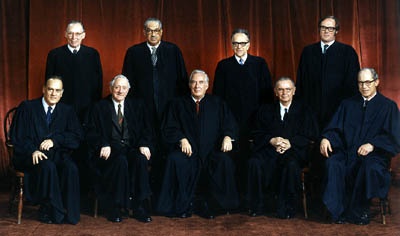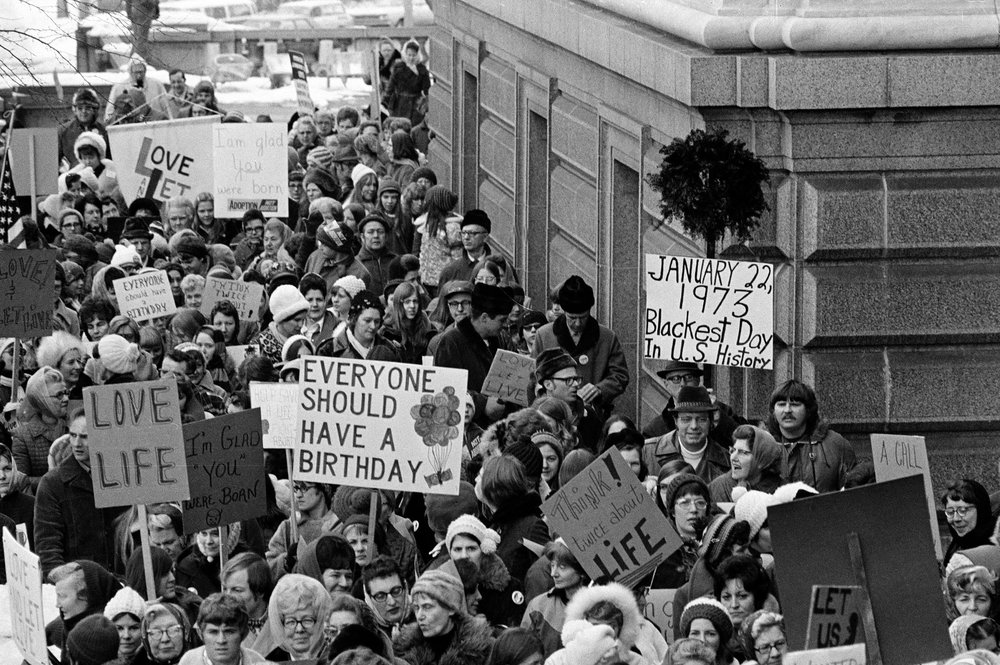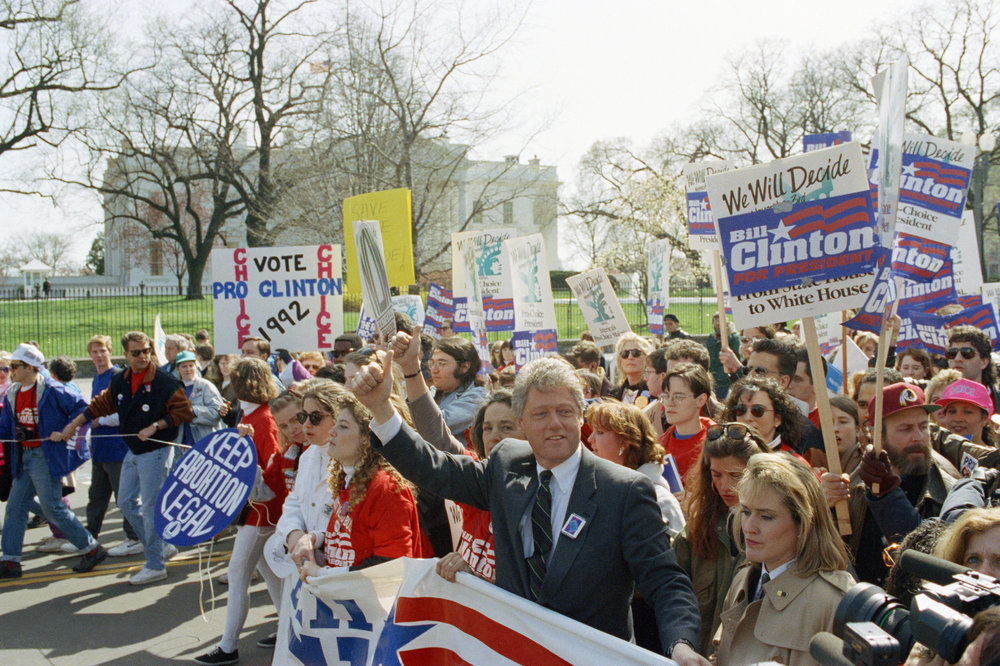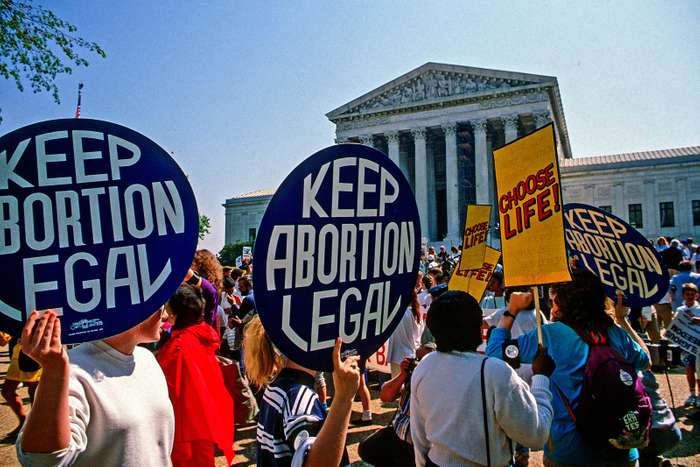
The Supreme Court justices appointed during Roe v Wade. This picture demonstrates how many of the decisions regarding abortion policy are often made by men.
Roe vs Wade was a landmark act passed in 1973, and legalized abortion throughout the United States. "Jane" pioneered the reproductive rights movement, making way for this controversial act.

The Supreme Court justices appointed during Roe v Wade. This picture demonstrates how many of the decisions regarding abortion policy are often made by men.
After the act was passed, it faced backlash, further exposing the division between the public's views on abortion policy. Many protestors viewed abortion as an issue of morality and ethics, and often used religion and personal anecdotes as support for their view.

"Women's groups were ecstatic. But immediately an opposition emerged. The Roman Catholic Church had long criticized abortion as a form of infanticide. Many fundamentalist Protestant ministers joined the outcry. The National Right to Life Committee formed with the explicit goal of reversing Roe v. Wade."
-Shaping a New America
However, despite the outward opposition displayed by many, the act gained numerous support from women's activists groups, along with various public figures.

Democratic presidential candidate Bill Clinton marches with abortion-rights supporters past the White House, April 6, 1992.

Supporters of abortion outside of Supreme Court building.
Despite its accomplishment in legalizing abortion throughout the United States, Roe v Wade did not entirely solve the abortion epidemic. Death by way of abortion was still at large, and physical reprecussions still existed. However, despite the lingering effects of a nation's century long struggle with the abortion policy, Roe v Wade was a victory for the "Janes." Additionally, despite the controversy surrounding the decision, it ultimately made abortions much safer and more accessible to women throughout the nation, and set a precedent for future laws.
"Three decades later, Roe v. Wade remains one of the Supreme Court's most controversial decisions, and political struggles over abortion rights still divide American politics. Roe has emerged as a central issue in federal judicial nominations, becoming a powerful symbol in debates about judicial restraint, judicial activism, and the proper role of courts in a democratic society."
-NYU Press